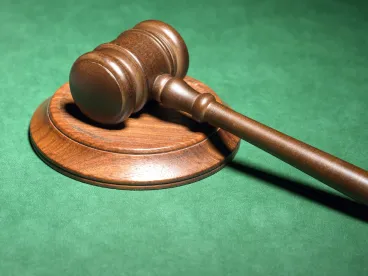The early bird really does get the best end of the deal, according to a new U.S. Supreme Court decision interpreting who is entitled to share in litigation awards, if a participant recovers significant monies from a lawsuit against the third party that caused his or her injuries, and the plan seeks reimbursement from those recovered monies for medical claims the plan has paid in conjunction with injuries the participant suffered from the accident. Montanile v. Bd. Of Trustees Of The Nat’l Elevator Industry Health Benefit Plan, 577 U.S. –, No. 14-723 (Jan. 20, 2016). The decision both limited employee benefits plans’ ability to recoup monies paid out to participants, and incentivizes plan sponsors to aggressively litigate rather than try to negotiate while the participant spends monies that might rightfully belong to the plan. The decision addresses an issue that can be of paramount importance to employers, particularly those that operate a self-funded medical plan, because no insurance carrier is available to bear the risk of paying medical claims.
Mr. Montanile, the plan participant and plaintiff in this Supreme Court case, was severely injured in a car accident involving a drunk driver. The Plan paid about $120,000 of Montanile’s accident-related medical expenses. Montanile later sued the drunk driver and obtained a $500,000 settlement. After legal fees and expenses, Montanile’s lawyer placed about $240,000 in an escrow account.
The Plan pursued Montanile to try and recoup the $120,000 it had advanced in medical expenses. After negotiations, Montanile’s attorney notified the Plan that the funds in the escrow account would be transferred to Montanile unless the Plan objected. When the Plan did not respond, the funds were transferred and Montanile began to spend the money on “nontraceable items,” such as food, to support himself and his daughter’s living expenses. Several months later, and over a year after the Plan first knew about Montanile’s settlement, the Plan brought suit to collect its reimbursement for Montanile’s medical expenses.
Like many ERISA plans, Montanile’s plan included a subrogation clause, which provided that the Plan was entitled to reimbursement for medical expenses advanced for the participant’s medical care from the injured participant’s recovery in a lawsuit against the responsible third party, such as the one filed by Montanile against the driver who caused his injuries. In previous decisions the Supreme Court has described these subrogation clauses as “equitable liens by agreement” and enforceable under ERISA. Under the logic of those prior cases, the plan can get reimbursed if the settlement proceeds or “assets” are still in the possession of the participant and the assets can be traced to those recovered from the party who caused the injuries. (See, e.g., Great-West Life Annuity Insurance Co. v. Knudson, 534 U.S. 204 (2002), Sereboff v. Mid Atlantic Medical Services, Inc., 547 U.S. 356 (2006), and U.S. Airways, Inc. v. McCutchen, 133 S. Ct. 1537 (2013)). However, the question still remained as to whether an ERISA plan could recover from a participant who, like Montanile, had already spent the money received from the lawsuit, in a way that was not traceable to some identifiable tangible property, like a car or house.
The Supreme Court, relying on traditional principles of equity, held that the Plan could only be reimbursed from the settlement funds. Because Montanile spent most or all of the settlement on nontraceable living expenses to support himself and his daughter, the Court determined that the Plan could not try to recover its $120,000 from Montanile’s other assets. In other words, if the Plan had filed suit sooner, while the assets were still identifiable (i.e. held in a separate account), the subrogation clause would still be effective and the Plan could be reimbursed from those assets. Since the Plan waited until Montanile spent his settlement money, the Plan could not look to Montanile’s other assets for reimbursement. The Court admonished the plan for waiting over a year to protect its right against the participant in spite of having full knowledge of the settlement.
Thus, employee benefits plans that want to recover monies that an injured participant recovers in an action against the person that caused the injury, the plan will need to take quick action before the participant spends the money on non-traceable goods. If the plan waits too long and the participant spends it all, it may be out of luck.


 />i
/>i

